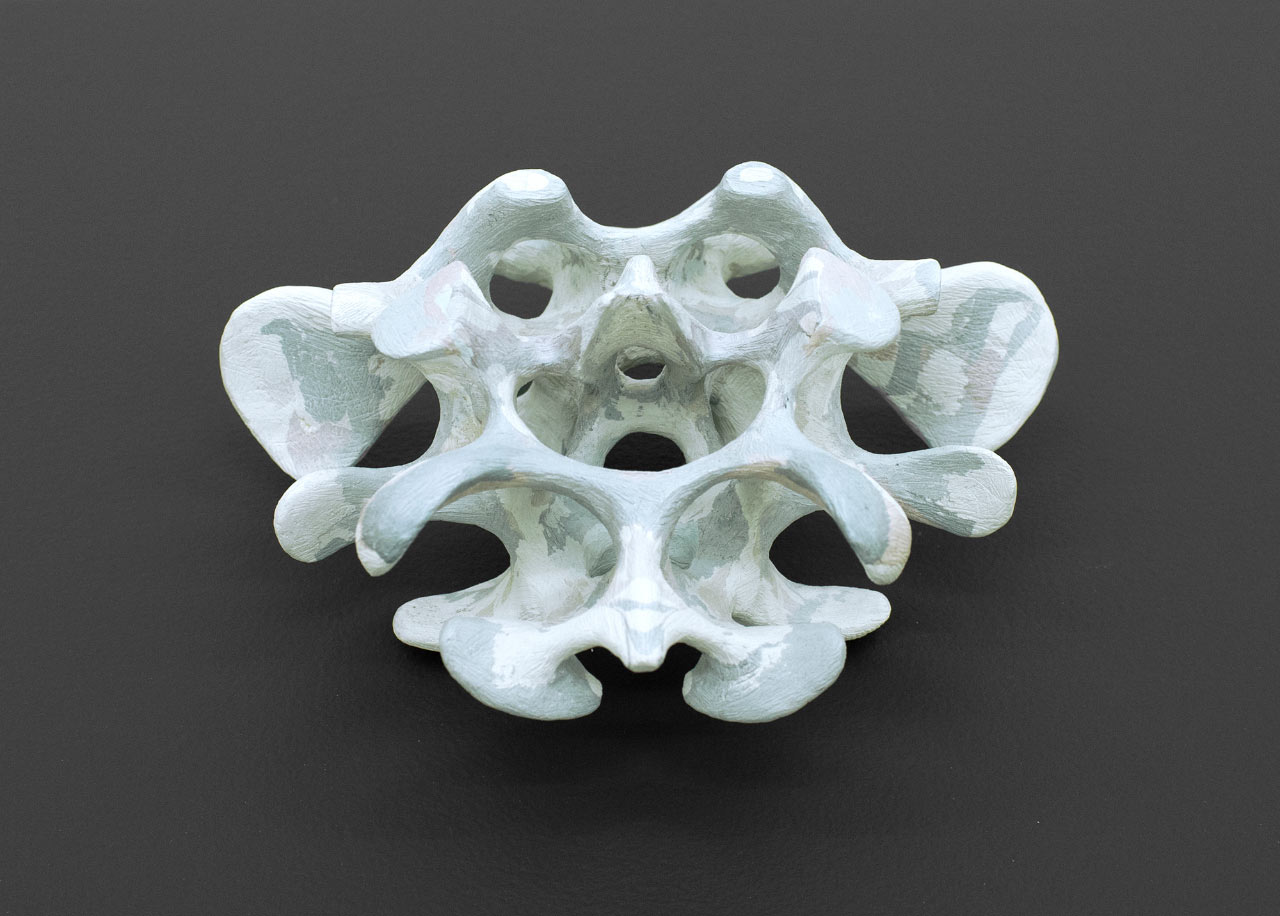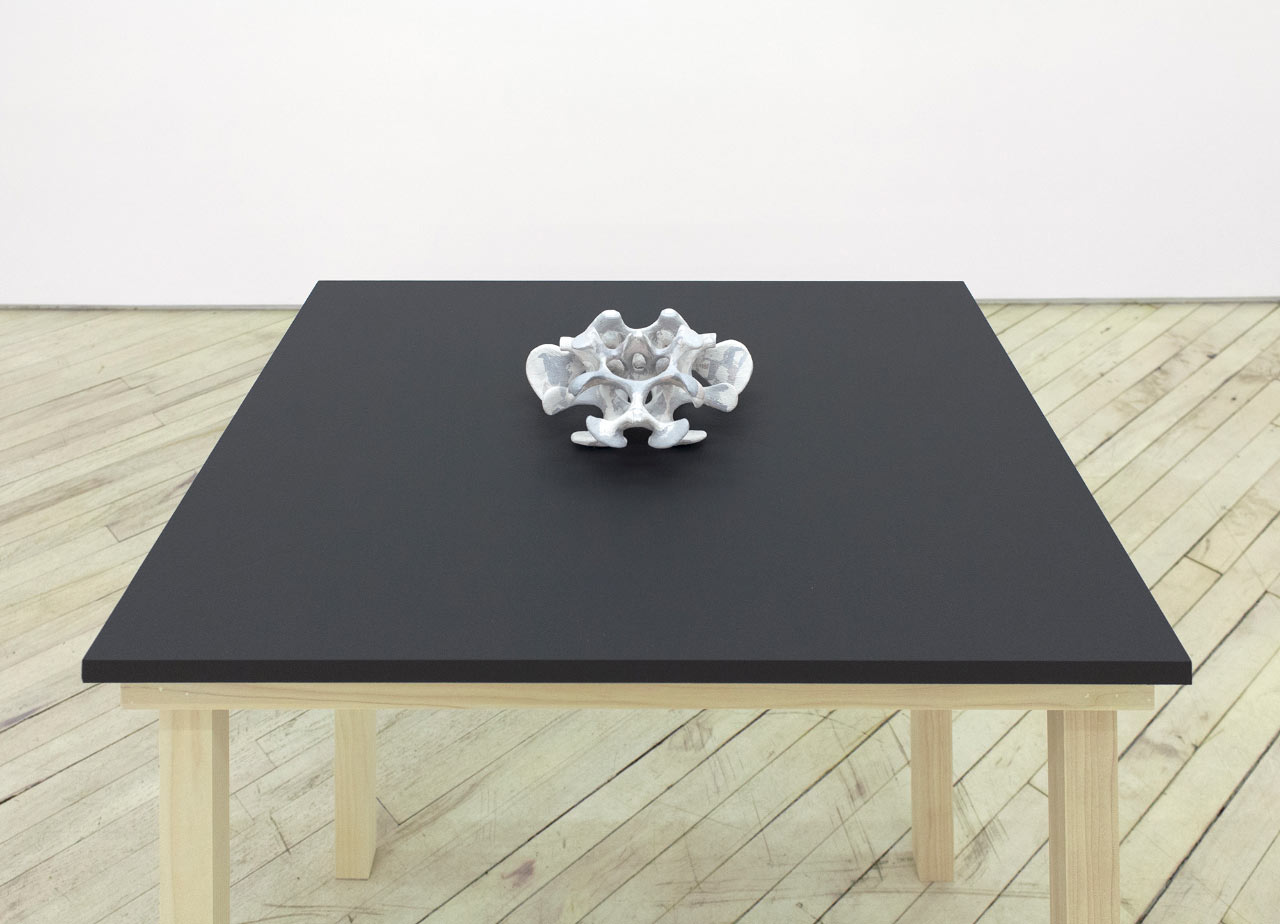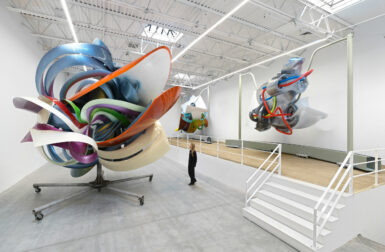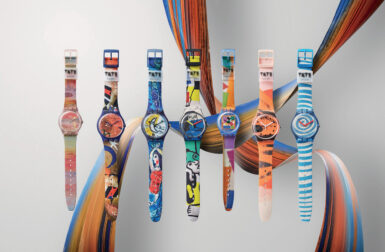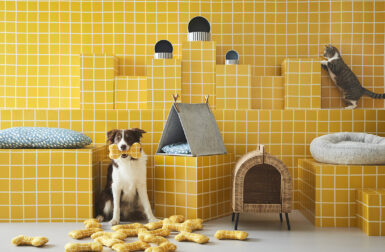Matt Hoyt is famous for tiny sculptures that take an incredible amount of time. His newest works, entitled Chrysalis, are on view at Bureau Gallery this month, take a risky turn for an artist famous for small: they’re slightly bigger.

Untitled (Group 152 – Join), 2012-2016, 54 component objects comprised of some or all of the following: various putties, epoxy resin, krazy glue, tempera and spray paint
Like his previous work, Matt creates sculptures over YEARS (note the date range in the titles), often shelving half-completed sculptures for so long that he forgets the original goal of the finished form. He is therefore constantly rediscovering, reexamining, and rebuilding his own forms. The colors aren’t solely aesthetic, but demonstrate the journey of alterations and additions as new putties, clays and resins build on previous forms.

Untitled (Group 143 – Combine) 2013-2015, 25 component objects comprised of some or all of the following: various putties, tempera and spray paint
Check out Design Milk’s feature of his 2014 show – you’ll notice these new works are bigger in 2 ways: scale and number. Several of the new sculptures measure over 8 inches wide – an enormous jump for someone who rarely breached an inch and a half. The larger works rest either alone on black tables that allow enough open space to keep them humble, or are shown alongside the numerous “grouped” arrangements, as if to prove a balanced math equation.
The “groups” have also grown. Though Matt has always married multiple objects in a single work of art, his past pairings of 2 or 3 objects have multiplied exponentially, now including and arranging up to 54 objects per set. These aren’t “chords” anymore – they’re entire songs.

Untitled (Group 157 – Unite), 2014-2017, 20 component objects comprised of some or all of the following: various putties, tempera and spray paint
The risk of growth:
Size is THE single most important consideration for any work of art – particularly sculpture. Scale sets up the position and speed of the viewer. And though large sculptors usually benefit from scaling up as they gain means to do so, it’s risky for a tiny sculptor to enlarge even slightly, endangering a certain core identity while significantly shifting the physical distance for a viewer. But fear not – Matt nails the transition. The method, materials, and mystery remain the same, but the forms are reconsidered. These aren’t simply magnifications of smaller works, but new geometries that evolve in complexity JUST enough to hold the spotlight alone while remaining equally “precious”. In short, Hoyt managed to increase the size while keeping the viewer equally close.
Check out the show in person, and plan on staying a while. These may be the most epic sculpture per square inch in history.
What: Matt Hoyt “Chrysalis”
Where: Bureau, 178 Norfolk St, New York, NY
When: March 26 – April 30, 2017
All images courtesy of the artist and Bureau, New York.


